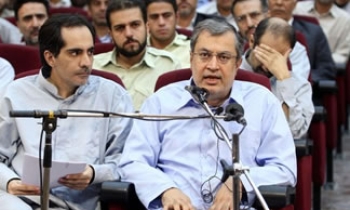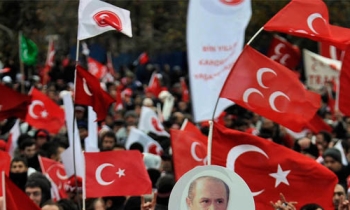Bulgaria's Parliament has adopted changes to the penal code that have introduced jail time for journalists and writers who instigate hatred, discrimination or violence - and could be used to impose controls on the media, says the South East Europe Media Organisation (SEEMO), an affiliate of the International Press Institute (IPI).
While the previous law covered only racial discrimination, the changes allow the possibility of prison sentences of one to four years for journalists convicted of instigating hatred, discrimination or violence based on race, ethnicity, nationality, religion, sexual orientation, marital or social status, or disability.
Ognian Zlatev, director of Bulgaria's Media Development Center, told SEEMO that the amendments could be an attempt to impose controls on media and the Internet. The hasty adoption of the amendments, without prior public discussion, might be a result of Bulgarian presidential and municipal elections later this year, he said.
SEEMO said that it condemns hate speech and discrimination but is also concerned with the prospect of journalists being jailed and how the courts might interpret allegations of discrimination, a concept not defined in Bulgarian law.
"Experience shows that court rulings in this area could be abused. As a result, journalists could resort to self-censorship," the organisation said.
Rather, journalists should apply self-regulation to control and prevent discriminatory rhetoric, SEEMO added.
The Representative on Freedom of the Media for the Organization for Security and Co-operation in Europe, Dunja Mijatović, warned Bulgaria's Foreign Minister that the amendments could curb media freedom. "It is very important to find effective ways to address hate speech without endangering free expression, and to ensure that legitimate criticism can be expressed," she said in a letter."Imprisoning journalists for their reports is excessive and violates international standards on free expression."
SEEMO also expressed concern at amendments that will limit access to Bulgaria's Business Registry. "Under the new provisions, journalists will have no free access to a very important source of information, previously used to uncover corruption and irregularities in companies," SEEMO said.
SEEMO secretary general Oliver Vujovic said, "I hope that the new amendments will not be used to promote censorship or prevent journalists from writing about issues which are in the public interest."
Besides Bulgaria's restrictive legislative environment, critics also point to problems of media concentration and newspapers being more vulnerable to political and financial influences.
In recent weeks, SEEMO has also condemned the decision of the Bulgarian authorities to deny journalists from Macedonia permission to enter Bulgaria to cover a commemoration of the death of Yane Sandanski. Sandanski led a resistance movement against the Ottoman Empire. Ethnic Bulgarians and Macedonians disagree over his ethnic origin, with each group claiming him as their own hero.









